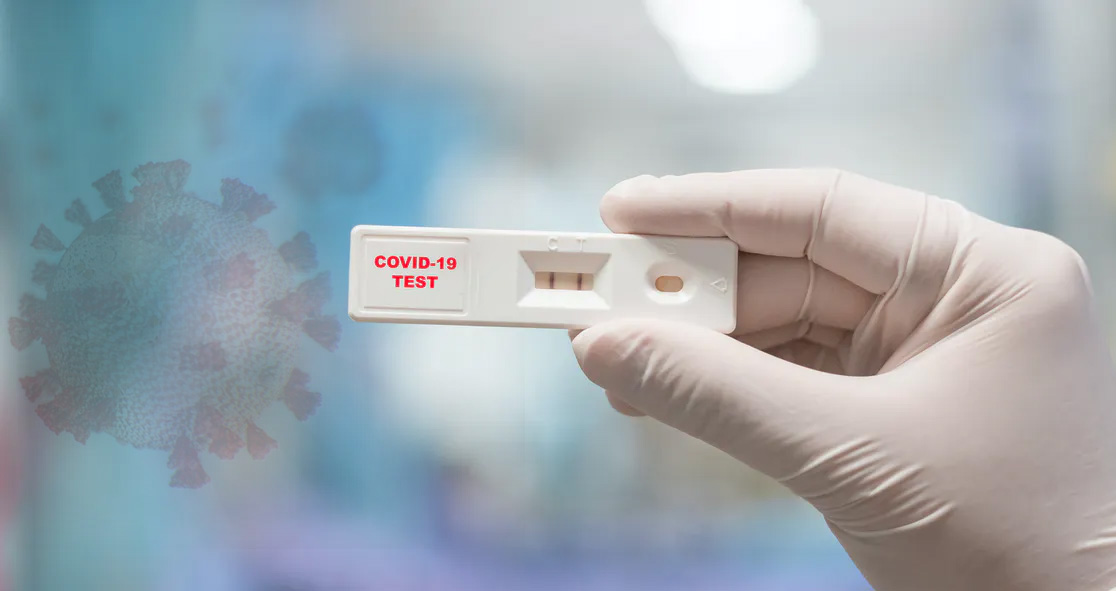A new study has found that weekly or twice-weekly rapid COVID-19 testing could cripple the novel coronavirus within weeks.
Researchers of the University of Colorado Boulder and Harvard University published the study findings Friday in the journal Science Advances.
The team said such a plan could lead to “personalized stay-at-home orders” without even shutting down restaurants, bars, stores, and schools.
Lead author Prof. Daniel Larremore of UC Boulder said, “Our big picture finding is that, when it comes to public health, it’s better to have a less sensitive test with results today than a more sensitive one with results tomorrow.”
“Rather than telling everyone to stay home so you can be sure that one person who is sick doesn’t spread it, we could give only the contagious people stay-at-home orders so everyone else can go about their lives,” he added.
Prof. Larremore and researchers at CU’s BioFrontiers Institute and the Harvard T.H. Chan School of Public Health explored whether the sensitivity, frequency, or turnaround time of the rapid test is important to stop the spread of COVID-19.
Using mathematical modeling to understand the impact of screening with different kinds of tests, the researchers found that frequency and turnaround time are more important than test sensitivity when it comes to curbing the spread of the virus.
For instance, the team found that twice-weekly testing with a rapid but less sensitive test decreased the degree of infectiousness of the virus by 80%. However, twice-weekly testing with a more sensitive PCR (polymerase chain reaction) test reduced the infectiousness of the virus by only 58%. It takes 48 hours to get the result of a PCR test.
Senior co-author Roy Parker of BioFrontiers Institute said, “This paper is one of the first to show we should worry less about test sensitivity and, when it comes to public health, prioritize frequency and turnaround.”
The study also has demonstrated the power of frequent testing in shortening the pandemic and saving lives, according to Medical Xpress.
“In the past, federal regulators and the public have been reluctant to embrace rapid tests out of concern that they may miss cases early in infection,” Parker explained. “But, in reality, an infected person can go from 5,000 particles to 1 million viral RNA copies in 18 to 24 hours.”
“There is a very short window, early in infection, in which the PCR will detect the virus but something like an antigen or LAMP test won’t,” he added. “And during that time, the person often isn’t contagious.”
Senior co-author Dr. Michael Mina of the Harvard T.H. Chan School of Public Health said, “These rapid tests are contagiousness tests. They are extremely effective in detecting COVID-19 when people are contagious.”
“They are also affordable,” Dr. Mina added. The rapid COVID-19 test can cost a dollar each and the results are delivered within 15 minutes, while a PCR test could take 48 hours or more.
Dr. Mina said the outcome would be profound if 50% of Americans get tested themselves at home weekly and get self-isolated if tested positive.
“Within a few weeks we could see this outbreak going from huge numbers of cases to very manageable levels,” he said.
Prof. Larremore said, “Rapid testing could also be the key to breathing life back into former super spreader threats like football stadiums, concert venues, and airports, with patrons testing themselves on the way in and still wearing masks as a precautionary measure.”
“Less than .1% of the current cost of this virus would enable frequent testing for the whole of the U.S. population for a year,” Dr. Mina explained.
“It’s time to shift the mentality around testing from thinking of a COVID test as something you get when you think you are sick to thinking of it as a vital tool to break transmission chains and keep the economy open,” Prof. Larremore said. The article originally appeared on Medical Xpress.























